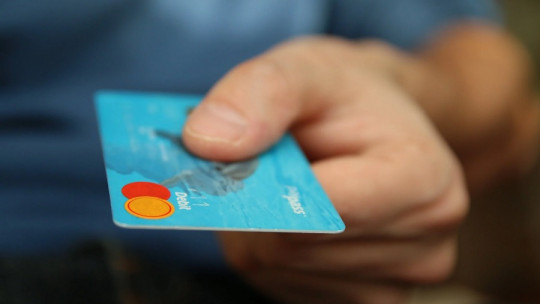
Managing finances both personally and as a family or as a couple can be a real headache for many people.
Human beings are not born taught in this aspect, and we acquire important knowledge during our lives; This means that many may feel disoriented when faced with such important dilemmas as what to do with the money they have. If we add to this that we also think in the long term and as a consequence we must make a series of forecasts, things become even more complicated.
But added to this, there is another aspect that we should not overlook: in finances we must combine the emotional with the rational. It is clear that to be happy we must have material resources that allow us to live with our needs covered, and that limiting ourselves to saving for the sake of saving will only lead to constant frustration or even an unhealthy lifestyle. On the other hand, we cannot constantly give in to impulses and short-termism.
That is why finding a balance between strategic positioning and pure hedonism is a challenge. In fact, For many people, managing their finances is primarily an exercise in ego, of wanting to appear and fit with certain stereotypes and prejudices, losing sight of whether these decisions are really the most reasonable taking into account the purchasing power that is available at the present. Constantly giving in to the mental trap of “if I believe in myself, fortune will come” can lead to personal or family crisis situations due to not knowing how to keep our feet on the ground.
How to get rid of the ego when making financial decisions?
Like almost everything in life, learning to manage home finances is something that is acquired with experience and through a series of mistakes that people make throughout their lives.
One of these errors comes from the ego itself, that is, from the need to pretend constantly that we have a better economic situation than we really have or the tendency to live beyond our own economic possibilities.
Personal ego sometimes leads us to make wrong or unresponsible decisions about spending our money or investing it improperly, and many times it can end up getting us into complicated economic and financial situations, which could have been avoided by acting differently from the beginning.
Below I will show you a series of guidelines that can help us get rid of the personal ego when managing our finances successfully
1. Prioritize safe investments
Risky investments through the implementation of all kinds of new methods have become very fashionable for several years and nowadays it is mainly young people who embark on this type of projects without the necessary knowledge.
When making any type of investment, we must ensure that we have a sufficient financial cushion in case the project ends up being unprofitable or our forecasts do not end up being as good as we expected.
In addition to that, it is important to be clear that you should not try to earn profits through investments If we don’t have enough money to cover our expenses during the months we estimate it would take to find a new job if we lose our current one.
2. Avoid getting into debt simply to spend
Avoiding getting into debt systematically is another of the rules that we can apply in our daily lives. As well as always living a little below our financial means, to ensure that we can comfortably face any financial adversity in the future.
The need to pretend that we have more money than we really have or the tendency to live spending more than we can afford, getting into debt repeatedly, It will prevent us from saving monthly and it is a way of life that can ruin us in the long run
3. Always invest with knowledge
When investing we must always be clear that without information our professional projects will surely fail and that if we do not know 100% of the details of each investment method What we start is probably that the projects end up going wrong.
It goes without saying that if we do not have updated information at all times about each investment model that we are going to put into practice, nor are we in contact with other people in the sector, it is most likely that we will not be able to obtain the desired benefits through a project. in particular.
4. Make forecasts taking into account the most pessimistic scenarios
In the world of finance, it is advisable to never make economic forecasts solely through optimistic estimates and always keep in mind the worst possible long-term economic scenario.
Having very positive forecasts about our economic future can cause us to start spending excessively and it makes us overconfident about our spending possibilities, to the point that we can reach situations of financial lack of control.
On the other hand, a conservative and pessimistic forecast will keep us grounded and will help us to carefully measure each of the financial operations that we carry out.
5. Keep financial failures in mind
When embarking on new, little-known investment modalities, it is important habitually remember our past financial failures to learn from them and that they do not repeat themselves.
Adopting a humble posture in the face of the memory of previous failures will allow us to overcome the ego and manage personal finances in the best possible way.
6. Ask for financial advice
Asking financial advice from family, friends or people who are experts in this field will help us acquire valuable and necessary knowledge to make the best decisions in the future.
As in any area of life, the best way to learn is to consult those people who know more than us, especially in a topic as important as finances.
7. Put savings first if we do not have an economic cushion
Another tip that we must keep in mind is to always opt for savings when we are considering the option of making a certain expense with extra money.
Saving is one of the fundamental pillars of successful finances ; That is why we should always choose to save money if we find ourselves in a dilemma between spending it or not.
8. Always pay debts
Whenever we have contracted debts of any type with someone, their payment must always take precedence over any other financial operation. If we don’t do it, it will be easy to generate a snowball effect in which problems will accumulate
Are you interested in having financial education services?
I have created a personal finance course in which we will delve into the different guidelines presented; My students are saving up to €300 a month sustainably with an average salary. Contact me so I can give you more details.








